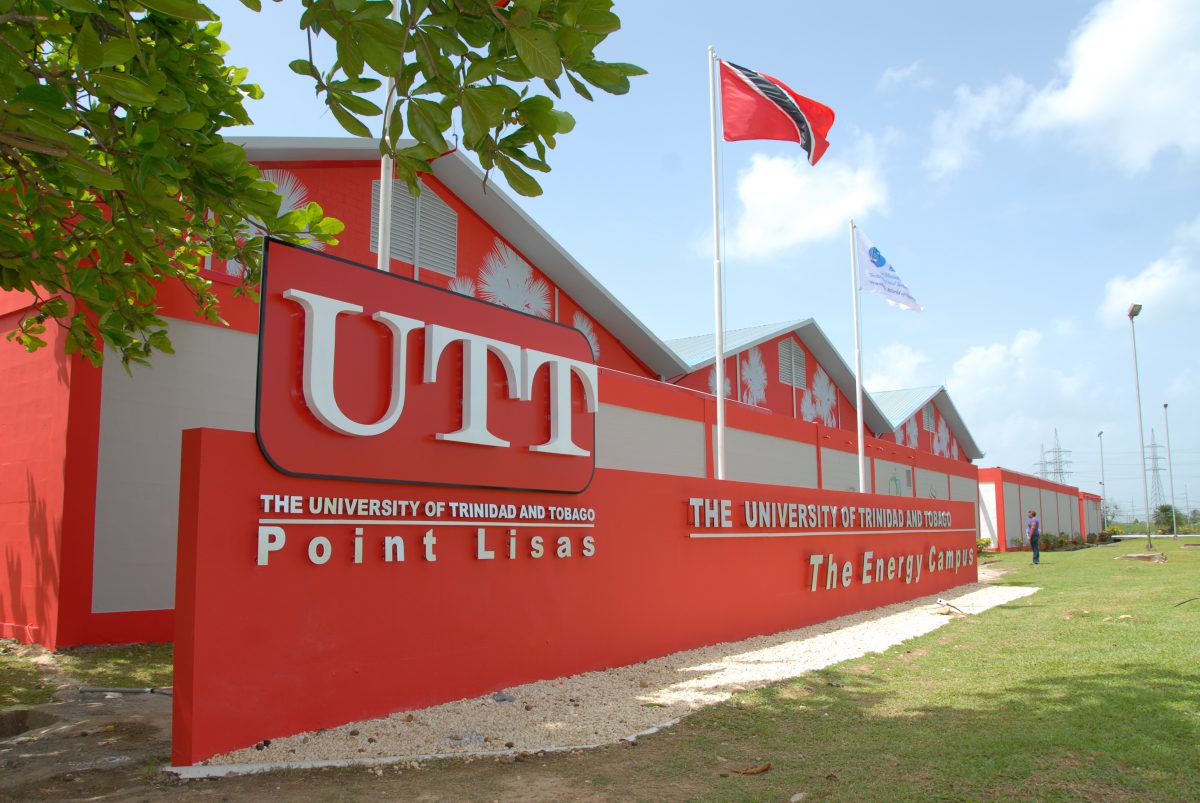(Trinidad Guardian) Tears flowed and anxiety increased among University of T&T staff yesterday, as some collected their retrenchment letters and others waited for hours at campuses throughout the country.
Several departments, including the Student Support Services, Health and Safety Department, Examination Department and Legal were literally shut down as staff, including senior managers, were sent home. Even the Industrial Relations Manager was sent home.
Staffers at UTT’s O’Meara, Port-of-Spain (John Donaldson), Chaguaramas (Maritime) and Point Lisas campuses got their retrenchment letters from the university’s Human Resources Department.
However, staff members at the Corinth and San Fernando Technical Institute were said to be waiting in anxiety for the entire day but never got their letters. At 4 pm they were all asked to leave the respective compounds with no explanation.
One south staff member described the act as an inhumane.
“People were in tears and having anxiety attacks for the entire day … this is inhumane, they suffering us with this wait.”
Another who received his letter with tears in his eyes said he does not know what to do next.
“I was sent home. I just got my letter and have to take my time and drive home because I don’t know where my mind is right now. I have to look for another job.”
A staff member from O’Meara who wished not to be identified said: “Is real pace inside of there and it’s like a dead house.”
A student who also went to conduct a transaction described what he observed.
“Something strange is happening there. I went to Accounts and Registration and they were closed, which is strange. I was not told of anything.”
Guardian Media attempted to gain access to the O’Meara campus but was turned away by security personnel, one of whom said, “Media is not welcomed…you have to leave now.”
Between 8 am and 11 am, Employment Assistance Programme Services desks were set up at the campuses where counselling services were offered to retrenched staffers, along with other services such as outplacement services, financial planning and wellness sessions.
In some of the letters sent out, some of the retrenched workers were asked to leave the premises immediately while others were given a 45-day notice but still advised that their presence was no longer needed and that they had one week to pack up their personal belongings.
Guardian Media was also reliably told that even the current security staff is to be replaced soon.
On Thursday, UTT president Professor Sarim Al-Zubaidy informed staff members via a memorandum of yesterday’s restructuring exercise. He said the university is at the stage where heads of units are being informed of their revised structures and the members of staff to be separated.
“Letters have been sent to the Ministry of Education and the recognised majority union informing of the status of UTT’s restructuring exercise. Correspondence to the Ministry of Labour and Small Enterprise Development will be dispatched later today (Thursday), ” Al-Zubaidy said in the memo.
“At this time, I would like to thank all members of staff for the patience exhibited, and which you continue to exhibit, during this extremely challenging period. Once again, staff are urged to act responsibly and allow good sense to prevail. We thank you for your cooperation,” Al-Zubaidy added.
On July 18, Professor Clement Imbert (Emeritus), acting chairman and chairman of the Human Resource and Appointments Sub-Committee (HRASC) of the board, confirmed the restructuring process but gave an assurance that 840 positions would be kept.
UTT’s restructuring exercise started over two years ago and the management has been engaged in ongoing discussions with the Oilfields Workers’ Trade Union (OWTU) since the start of the process.
Imbert confirmed that the current restructuring will result in approximately 200 non-academic staff being separated, including persons at the level of manager or above.
Imbert explained that the university had no choice to take this action because of the prevailing economic situation.
“Government is the major source of revenue for UTT, via direct allocations for its capital and recurrent expenditure, and through the reimbursement of student fees under GATE; the prevailing economic situation has not allowed Government to maintain the level of annual subventions previously allocated to the university, “ Imbert said.
“Those reductions exposed inefficiencies in the operations of the university – inefficiencies which were already being reviewed, both in respect of its academic structure and its non-academic and support staffing; Salaries and related benefits of UTT’s staff account for over 70 per cent of the university’s recurrent expenditures.”
Implementing the non-academic restructuring allows UTT to reduce its payroll by approximately $2 million monthly, bringing it further in line with the finances required given the level of the subventions approved by Government.
The distribution of letters is expected to continue on Monday.










